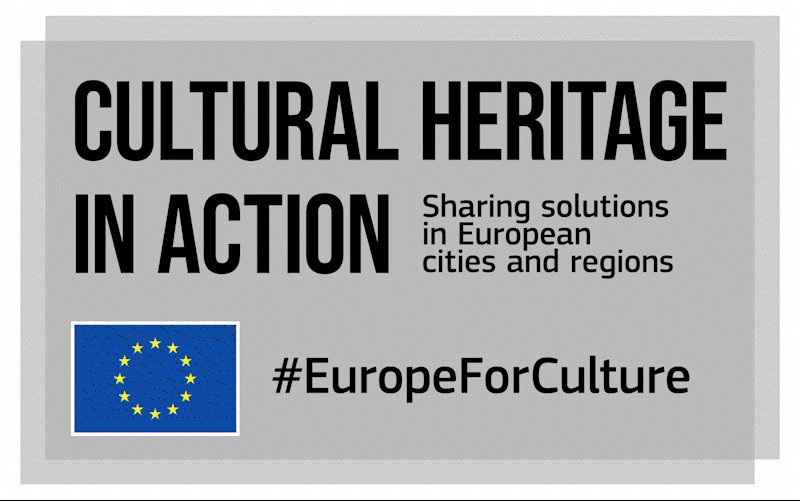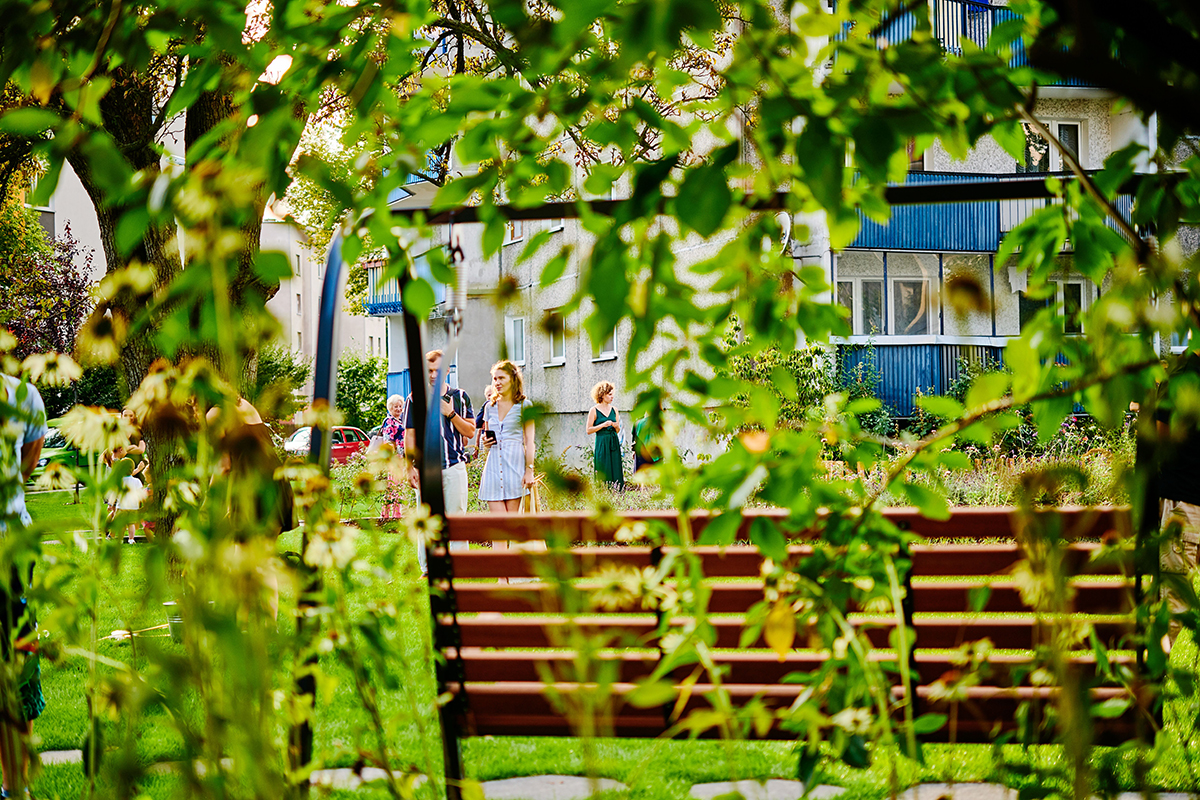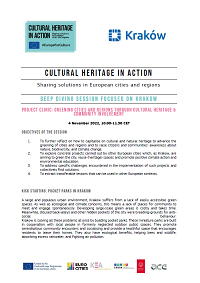Objectives of the session
- To further reflect on how to capitalise on cultural and natural heritage to advance the greening of cities and regions and to raise citizens and communities’ awareness about nature, biodiversity and climate change.
- To explore concrete projects carried out by other European cities which, as Krakow, are aiming to green the city, reuse (heritage) spaces and promote positive climate action and environmental education.
- To address specific challenges encountered in the implementation of such projects and collectively find solutions.
- To extract transferable lessons that can be used in other European contexts.
Kick starting: pocket parks in Krakow
A large and populous urban environment, Krakow suffers from a lack of easily accessible green spaces. As well as ecological and climate concerns, this means a lack of places for community to meet and engage spontaneously. Developing large-scale green areas is costly and takes time. Meanwhile, disused back-alleys and other hidden pockets of the city were breeding-grounds for anti-social behaviour.
Krakow is solving all these problems at once by building pocket parks. These miniature parks are built in cooperation with local people in formerly neglected outdoor public spaces. They promote serendipitous community encounters and socialising, and provide a healthful space that encourages residents to leave their homes. They also have ecological benefits, helping bees and wildlife, absorbing excess rainwater and fighting air pollution.
Projects clinic
Participants will be given the opportunity to react and ask burning questions to the presenters before each city presents their selected challenge in relation to their case study.
The experts who attended the visit in Krakow will guide the group through a collegial advice activity to address specific challenges encountered in the implementation of such projects and collectively find solutions.
Project’s pitches:
- Amsterdam, the Netherlands: “Counter for Heritage & Sustainability ” with Annette ten Doeschate, policy advisor / project leader Heritage & Sustainability of the City of Amsterdam.
- Bologna, Italy: “Giardino della resilienza” – Resilience Park with Giulia Santone, representative of the Management Office – Collective Living and Housing Support Office of the City of Bologna and Francesco Leonardo Nelli, International Relations Officer of the City of Bologna.
Why should you join?
During this session, you will get some insights into the content of the peer learning visit in Krakow and the analysis of models for sustainable city makeover through natural and cultural heritage. Two cities will present a “comparable” case to Krakow pocket parks, focusing on the background, the status of work to date, and ambition, and highlighting one or two key issues where they would welcome the input of other participants. The essence of the advice can be captured as “top tips”. Presenting cities will reflect on what they’ve heard and provide additional information. The session will also be an opportunity to discuss your own challenges and present your examples.
The session will provide an occasion to engage in discussion with peers from other European local authorities. We will also provide access to the materials shared during the peer learning visit with all participants in the online deep-diving session.



